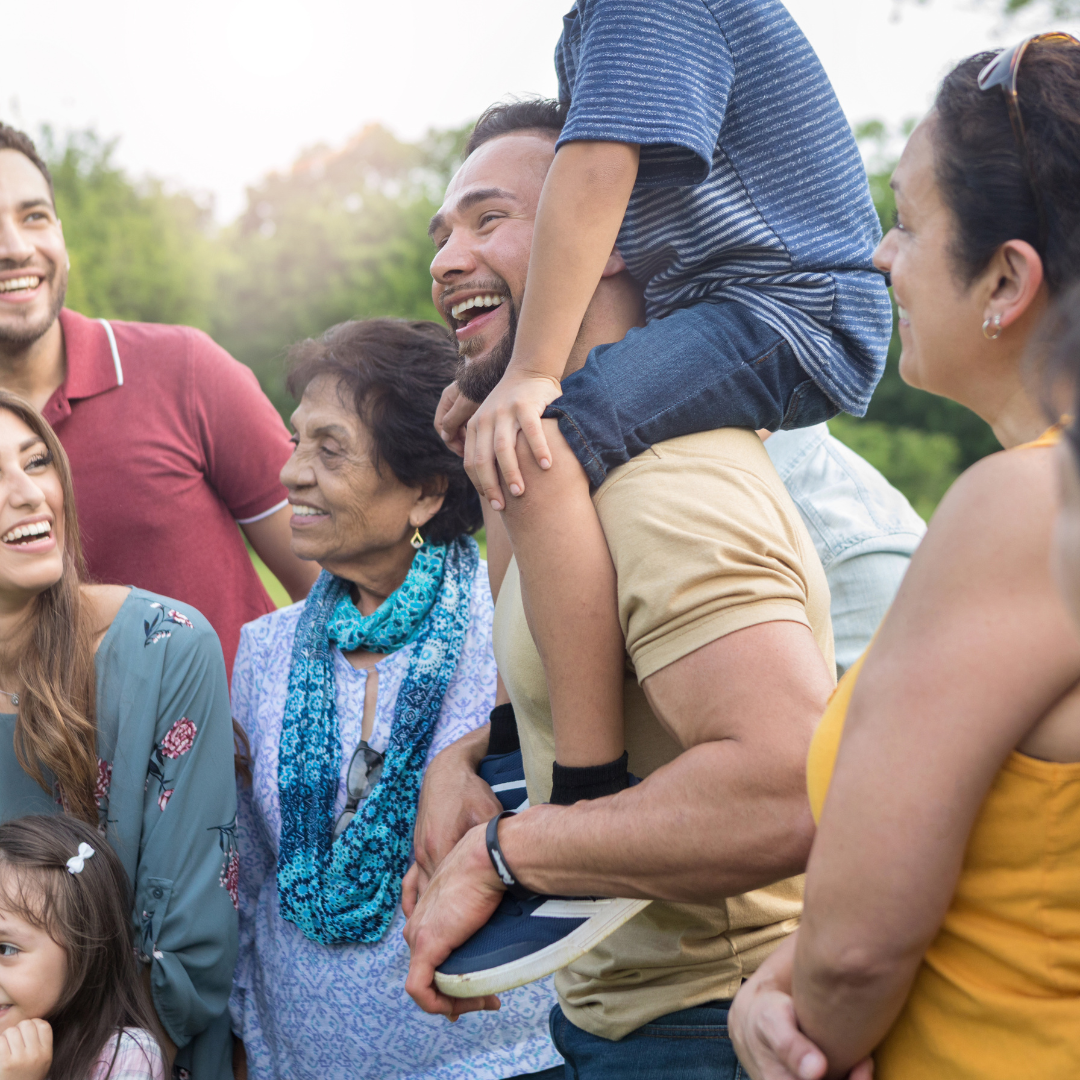The holidays are often seen as a joyful time, but for many, they can also bring feelings of isolation. Whether it’s due to personal struggles, past trauma, or the weight of societal expectations, not everyone feels the festive cheer. This is why it’s crucial to create environments where everyone feels welcome, included, and supported.
In this blog, we’ll explore mental health tips for fostering a holiday season that promotes inclusivity and emotional well-being for all. At Water’s Edge Counseling we offer a safe space for the LGBTQ+ community as well as other marginalized groups. Therefore, it is important to us to help make this holiday season one where everyone—no matter their background or circumstances—feels valued and understood.
Be Mindful of the Emotional Needs of Others
The holiday season can bring mixed emotions. For some, it’s a time of joy and togetherness; for others, it may trigger sadness, anxiety, or loneliness. Whether it’s someone grieving a loved one, dealing with seasonal depression, or simply feeling overwhelmed by expectations, it’s important to recognize that not everyone experiences the holidays in the same way.
How to Be Mindful:
- Ask before assuming: Instead of assuming that everyone shares your excitement or joy about holiday activities, check in with people. A simple, “How are you feeling about the holidays this year?” can go a long way in acknowledging their emotional state.
- Create space for honesty: Let people know that it’s okay not to feel “holiday cheer” and that they don’t have to put on a brave face. Just offering a listening ear can be an immense support.
Offer Inclusive Invitations and Considerations
Sometimes, it’s easy to unintentionally exclude others by assuming everyone celebrates the same traditions or has the same holiday plans. This is especially true for those who may not celebrate Christmas or who are away from their families. By being inclusive in your invitations, you can make sure that no one feels left out or alienated.
How to Be Inclusive:
Consider alternative activities: If you know someone feels left out because they can’t travel home for the holidays or because their traditions are different from yours, consider offering alternatives, such as a “Friendsgiving,” an informal holiday meal, or a simple phone or video call.
Respect different traditions and beliefs: Not everyone celebrates the same holidays, and some may not celebrate at all. It’s important to set your own healthy boundaries around politics and other sensitive subjects. Learn more about setting healthy boundaries here.

Create a Safe Space for Mental Health Conversations
The holidays can bring to the surface personal struggles such as depression, anxiety, grief, or relationship difficulties. While the pressure to be “happy” can feel overwhelming, creating a safe and non-judgmental environment where people feel comfortable discussing their mental health challenges can make a huge difference.
How to Foster Safe Conversations:
Check in regularly: For those who may struggle with loneliness or anxiety, small gestures like sending a text, calling, or asking how they’re doing can make a big difference. It helps people feel noticed and valued, which is important for mental well-being.
Normalize talking about mental health: Start by sharing openly about your own experiences or struggles, if you feel comfortable doing so. This can encourage others to do the same. For example, you might say, “I know the holidays can be tough sometimes—if anyone needs someone to talk to, I’m here.”
Be mindful of language: Avoid using phrases like “Just cheer up!” or “It’s the holidays, you should be happy!” Instead, use empathetic language like “I’m sorry you’re feeling this way. How can I support you?” or “You don’t have to go through this alone.”
Make Space for Those Who Are Feeling Isolated or Alone
The holidays can be an especially lonely time for those who have lost loved ones, are far from family, or feel disconnected from others. Loneliness is a common struggle, and simply acknowledging that someone might feel isolated can go a long way in showing that they matter.
How to Support the Lonely:
- Reach out: If you know someone who is alone during the holidays, reach out with a message or an invitation. Even if they decline, the simple act of being thought of can provide comfort.
- Volunteer: Volunteering during the holidays is a great way to help others who might be facing challenges. Many people experience loneliness, and there are numerous organizations that could use your support during the season. It’s a way to build community and make others feel that they are cared for.
- Host an “Open Home” event: If possible, consider hosting an open gathering where people can come and go as they please, offering a place of comfort for anyone who may not have other plans.
Encourage Relaxation and Self-Care
The holidays can also come with significant pressure to meet unrealistic expectations—whether that’s decorating, gift-giving, or attending every event on the calendar. Encouraging relaxation and self-care is essential to ensuring that no one feels overwhelmed by the season’s demands.
How to Encourage Self-Care:
Create opportunities for downtime: While holiday gatherings are wonderful, it’s also important to carve out time for quiet moments or low-pressure events where people can recharge. For example, a cozy movie night or a quiet tea break can offer the mental space needed to decompress.
Promote realistic expectations: Help people set healthy boundaries. If someone doesn’t have the energy to attend every event, remind them that it’s okay to say no. Encourage others to take breaks, practice mindfulness, or engage in stress-reducing activities like taking a walk, reading, or meditating.
Be Sensitive to Financial Stress
The holiday season can often bring financial strain, with the pressure to buy gifts, prepare elaborate meals, or travel. This financial stress can take a toll on people’s mental health, leading to anxiety, shame, or guilt.
How to Be Supportive During Financial Strain:
- Offer non-material gifts: Not everyone can afford to buy gifts, and that’s okay. Encourage people to think about alternative gifts, such as handmade presents, experiences, or simply giving the gift of time and attention.
- Avoid making people feel uncomfortable about not participating in expensive activities. For instance, if you’re planning a gift exchange or a pricey outing, make it clear that no one is obligated to participate. Offer lower-cost alternatives for social gatherings.
Acknowledge Grief and Loss
The holidays can be a particularly painful time for people who have lost loved ones. Acknowledging their grief, without forcing them to participate in festive activities, is crucial for emotional support.
How to Support Those Grieving:
Honor their loved ones: If appropriate, offer a moment of remembrance during holiday gatherings. This might mean sharing a memory or simply offering a moment of silence.
Offer emotional space: It’s important to give people the room to express sadness and loss. Acknowledge their grief by saying something like, “I know this time of year is difficult for you. I’m here for you if you need anything.”
Focus on the Meaning of the Season
Shift your focus to what the holidays truly mean to you, whether that’s spending time with loved ones, giving back to the community, or reflecting on your personal growth. By centering your energy on meaningful activities, you can reduce the emphasis on substance use in social settings.
Fostering Inclusivity for the LGBTQ+ Community
Fostering inclusivity for the LGBTQ+ community involves creating an environment where everyone, regardless of sexual orientation or gender identity, feels safe, valued, and respected. This can be achieved by implementing policies that protect LGBTQ+ individuals from discrimination, offering resources and support for mental and emotional well-being, and promoting visibility through education and representation in media, workplaces, and schools. It also requires individuals to be allies—actively listening to LGBTQ+ voices, challenging harmful stereotypes, and standing up against injustice. By embracing diversity and promoting understanding, society can move toward a more inclusive world where all people, regardless of their identity, can thrive without fear of marginalization or exclusion.
Start Receiving Support From Therapists in Savannah, GA
Remember that small gestures of empathy can make all the difference in creating an environment where people feel safe and valued. Are you or someone you know looking for a safe space in our community? Give us a call today, 912.319.5552. A licensed therapist or counselor can provide guidance, validation, and coping strategies tailored to your unique needs and circumstances. Therapy can offer a safe space to explore your feelings, fears, and uncertainties, as well as develop practical skills for managing stress, anxiety, and depression. Our team would be honored to offer support from our Savannah, GA-based practice. You can start your therapy journey by giving us a call at 912.319.5552 or emailing us at [email protected].
Other Services Offered With Water’s Edge Counseling
We understand that you may experience issues with more than one mental health concern at a time. This is why we are happy to offer support with a variety of mental health services. Our team is happy to offer support with multiple mental health services including online counseling, clinical supervision, coping after a cancer diagnosis, and SCAD student counseling. We are also happy to offer therapy for anxiety, depression, eating disorders, substance abuse, teen substance abuse, and counseling for men. In addition, we also offer counseling for teens, child counseling, family counseling, Christian counseling, grief counseling, and marriage counseling.
Please note: While this blog is designed to help people achieve their goals, the information within each post is not a substitute for therapy or medical advice given by a licensed professional.

